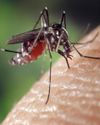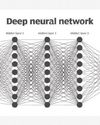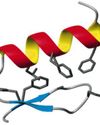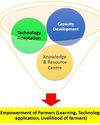
These drugs are primarily used to relieve pain during surgical procedures, manage chronic pain management, and treat neurological disorders like epilepsy and Alzheimer's disease. The research studies have shown that glutamate receptor antagonists might be toxic to the developing nervous system, particularly in neonates and children. However, despite the obvious risks associated with the use of glutamate receptor antagonists in the developing nervous system, these drugs continue to be widely used in clinical practice. This is due in part to the lack of alternative treatments for certain disorders, as well as a lack of awareness of the long-term risks associated with these drugs.
Glutamate is the primary excitatory neurotransmitter in the central nervous system. It plays an essential role in brain development, including the migration, proliferation, and differentiation of neural cells. Excessive glutamate release can lead to excitotoxicity, a process that damages neurons and other cells in the nervous system. Glutamate receptor antagonists, which inhibit the binding of glutamate to its receptors can prevent or reduce this excitotoxicity.
Receptor type:
There are two major types of glutamate receptors: ionotropic and metabotropic. Ionotropic receptors mediate fast synaptic transmission, while metabotropic receptors modulate longer-term signalling events. Glutamate receptor antagonists can target both ionotropic and metabotropic receptors. Ionotropic antagonist drugs are divided into two subtypes: N-methyl-Daspartate (NMDA) receptor antagonists and alpha-amino-3hydroxy-5-methyl-4-isoxazolepropionic acid (AMPA) receptor antagonists.
Receptor antagonist:
この記事は Scientific India の May-June 2023 版に掲載されています。
7 日間の Magzter GOLD 無料トライアルを開始して、何千もの厳選されたプレミアム ストーリー、9,000 以上の雑誌や新聞にアクセスしてください。
すでに購読者です ? サインイン
この記事は Scientific India の May-June 2023 版に掲載されています。
7 日間の Magzter GOLD 無料トライアルを開始して、何千もの厳選されたプレミアム ストーリー、9,000 以上の雑誌や新聞にアクセスしてください。
すでに購読者です? サインイン

An insight into Chandipura virus in India
Recently lot of news regarding disease due to Chandipura virus has emerged in various newspapers/magazines. After reading the reports published it seems that thing is still brewing in the natures nest and it could affect mankind.

Why elephants never forget?
An elephant has a very large brain for its size and the 'temporal lobe' region responsible for memory is more developed with a greater number of folds - this results in powerful abilities to 'download' important survival data such as where to find food and water, and who is friend or foe.

Use of Algae for Wastewater Treatment Containing Heavy Metals
Wastewater treatment is a critical environmental issue particularly when it comes to the removal of heavy metals.

Nano priming Seeds: A Small Innovation Sparkling Big Advances in Germination
Nanopriming is an emerging agricultural technique where the seeds are treated with nanoparticles to improve their germination, growth, and overall performance.

Nobel Laureates in Physics 2024: Revolutionizing AlThe Physics Foundations Behind Machine Learning
This year's two Nobel Laureates in Physics have used tools from physics to develop methods that are the foundation of today's powerful machine learning.

Revolutionizing Biology: The 2024 Nobel Prize in Chemistry Celebrates Breakthroughs in Protein Design and Structure Prediction
The Nobel Prize in Chemistry 2024 is about proteins, life's ingenious chemical tools.

New findings on animal viruses with potential to infect humans
Scientists investigating animal viruses with potential to infect humans have identified a critical protein that could enable spillover of a family of organisms called arteriviruses.

Father-Daughter Team Decodes Mars' Alien Signal
There is no definitive answer to whether aliens exist, but there is a lot of work being done to find out:

Krishi Vigyan Kendras: Working for Farmer's Welfare
Krishi Vigyan Kendras (Farm Science Centres) are the District level institution serving as an agriculture knowledge resource & capacity development centre which plays indispensable role in front line extension regarding agriculture system in scientific way.

Sixth generation Computer: The future computing technology
We are in a transition towards a digital world, where everything will be dealt with in digital format.